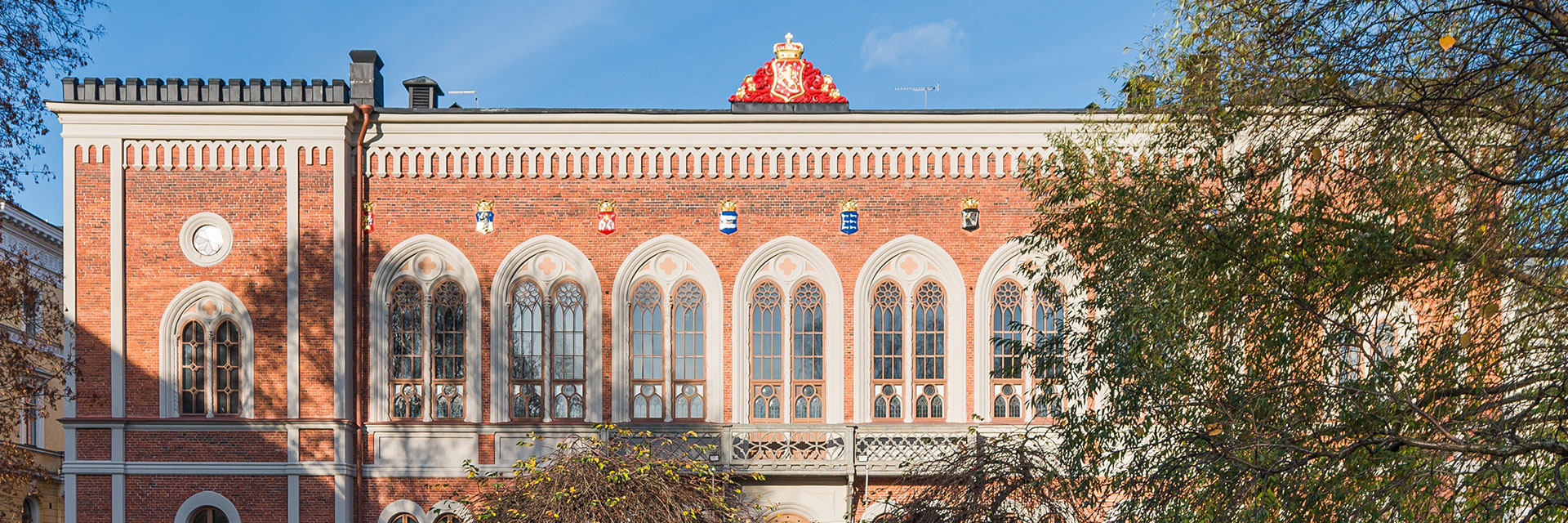
Nobility in Finland
During the Middle Ages, the King of Sweden consolidated his power at the expense of the counties and the local chieftains. Centralisation called for a standing army. Taxpaying farmers were enticed to furnish a trooper with horse and arms to do military service. In return, the farmer was granted exemption from land dues to the Crown and thus became a member of the nobility. The system of tax exemption was ratified through the Alsnö Act in 1279.
From personal to hereditary nobility
The tax exemption was at first personal and was not automatically passed on to the next generation. The exemption could also be withdrawn, and it had to be reaffirmed each year in an inspection, where the provision of a horse and arms was confirmed. In the 16th century, the system had developed to a point where the privilege of tax exemption was considered hereditary (it should be noted that Gustav Vasa had issued a decree at the Diet of the four Estates in Västerås in 1544 that made Sweden a hereditary monarchy). The exemption from taxes, which in effect meant ennoblement, was bestowed upon a person by the monarch, and later the exemptee was no longer required to make provisions for a trooper. Nevertheless, soldiers, or military officers in active duty, were still usually those considered worthy of ennoblement. Gradually, however, an increasing number of high-ranking officials and eminent scientists started to be raised to the nobility on account of their personal merit.
Nobility and gentry
Access to the highest public offices was typically restricted to the members of the nobility. However, nobility did not in itself guarantee that one could reach all one’s ambitions. Indeed, the noble ranks were in fact divided into two classes: nobility and gentry. The nobility consisted of counts, barons (friherre) and members of the Riksråd. These high-ranking nobles were rich and powerful, but they were also few in number, particularly in Finland. The gentry, on the other hand, were relatively poor in comparison, and there were also more of them. Regardless of whether one belonged to the nobility or the gentry, however, it is clear that the gentry, which was gradually formed from government officials, constituted the self-evident upper class in Finnish society.
The nobility in politics
The nobility had formed one of the four estates of the realm since the Diet of Arboga in 1435. In addition to the nobility, the estates included clergy, burgers (urban population that mostly included manufacturers, merchants and lower officials) and peasants (the rural population, i.e. land-owning farmers). When the four estates were summoned to a diet, they first carried out negotiations amongst themselves, after which the matter at hand was put to a vote. Each estate only had one vote, which means that the votes of three of the estates were needed to pass a motion at a diet.
The construction of the Finnish House of Nobility in 1818
Gustav II Adolf founded the House of Nobility in Sweden in 1626. The noble families were introduced to the House in the order following the time of their ennoblement. A lavish palace was constructed near Riddarholmen in Stockholm, which provided the nobility with a place of assembly. The Swedish state had lost its eastern regions to Russia in the Finnish war (1808–09), and Finland consequently became a Grand Duchy of Russia under the rule of the Russian Emperor. In 1818, a House of Nobility was built for the activities of the members of the Swedish nobility who continued to live in Finland, as well as for the Finnish noblemen that had recently been granted a title by the Grand Duke – the Emperor. The last person to be ennobled in Finland was August Langhoff, General and Minister-Secretary of State, who was awarded the title of friherre in 1912.
No political power in present-day society
After 1809, the tradition of the Swedish Riksdag of the Estates continued in Finland as the four estates were sporadically summoned to convene at a diet. It was not until 1906 that the system was replaced by a unicameral parliament. This change marked a step where Finland abolished one of the most old-fashioned forms of parliamentary representation in Europe in favour of one of the most progressive and democratic ones. Consequently, the nobility lost its significance as a political body.
